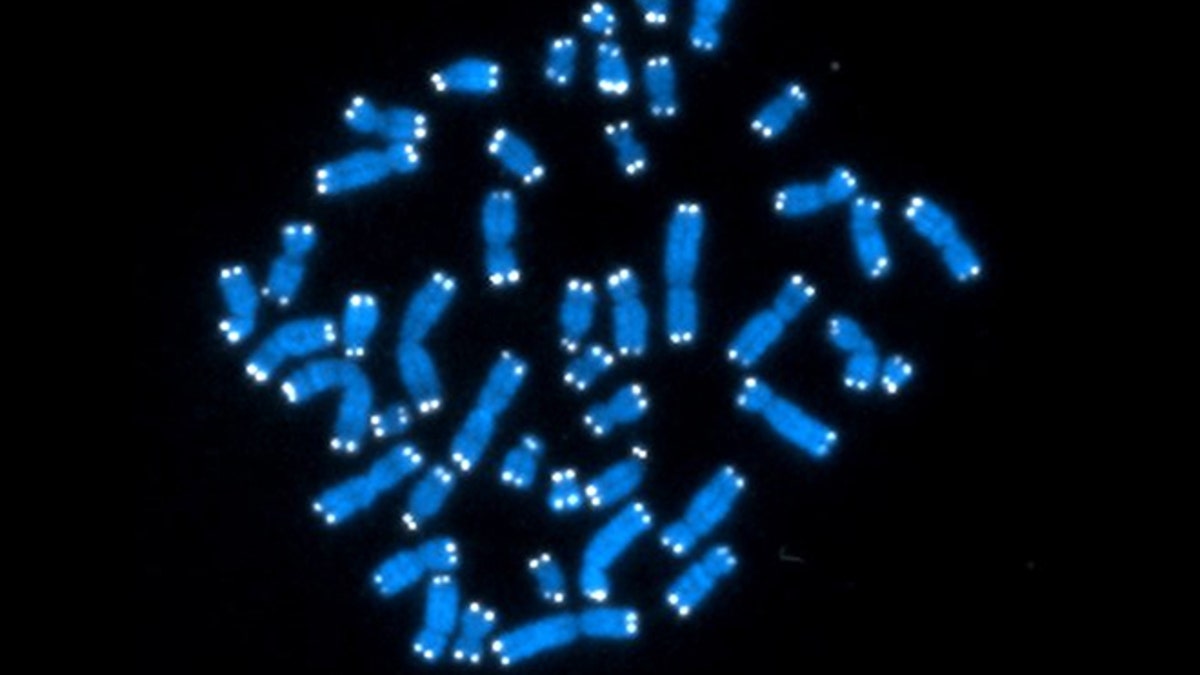
Sept. 5, 2012: The 46 human chromosomes, where DNA resides and does its work. Each chromosome contains genes, but genes comprise only 2 percent of DNA. (AP Photo/National Cancer Institute)
Researchers who sequenced the genomes of Icelanders now know more about their DNA than any other nation on earth, and say their findings could lead to determining who is at risk for certain diseases with just the push of a button.
Scientists at deCODE genetics published their data in the journal Nature Genetics, and say that it would be “criminal” to not use the information for medicinal purposes, according to BBC News.
In the studies, scientists sequenced the genomes of 2,636 residents of Iceland and identified more than 20 million genetic variants. All DNA data has remained anonymous thus far.
“By using these tricks we can predict, with substantial accuracy, the genome of the entire nation,” Dr. Kari Stefansson, the chief executive of deCODE told BBC News.
The report was published days after actress Angelina Jolie announced she underwent preventative surgery to have her ovaries and fallopian tubes removed after finding out she was at high-risk for developing ovarian cancer. Jolie also underwent a mastectomy two years ago after learning she had a mutation in the BRCA1 gene.
“We could, in Iceland, at the push of a button find all women who carry mutations in the BRCA2 gene,” Dr. Stefansson told BBC News.
“The risk could basically be nullified by preventative mastectomies and overiectomies. It would be criminal not to take advantage of it and I am convinced that my fellow countrymen will begin to use it pretty soon,” Stefansson said.
The research also identified a new gene linked to Alzheimer’s disease, according to BBC News.
However, some caution that the use of such data may raise ethical concerns, as not everyone volunteered their DNA for the study.
“The concerns are that the data is going to be made public, anonymity technically promises protection, but you can be re-identified in datasets,” Dr. Susan Wallace of the Nuffield Council of Bioethics told the BBC News.
“There are also concerns of commercial interests in the use of these databases, so there are a lot of concerns that need to be addressed,” she said.
